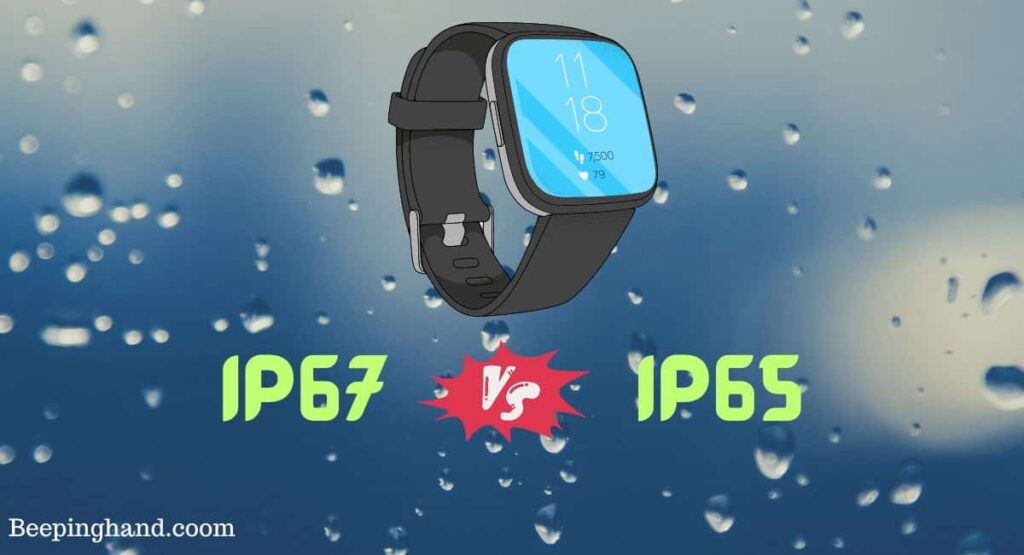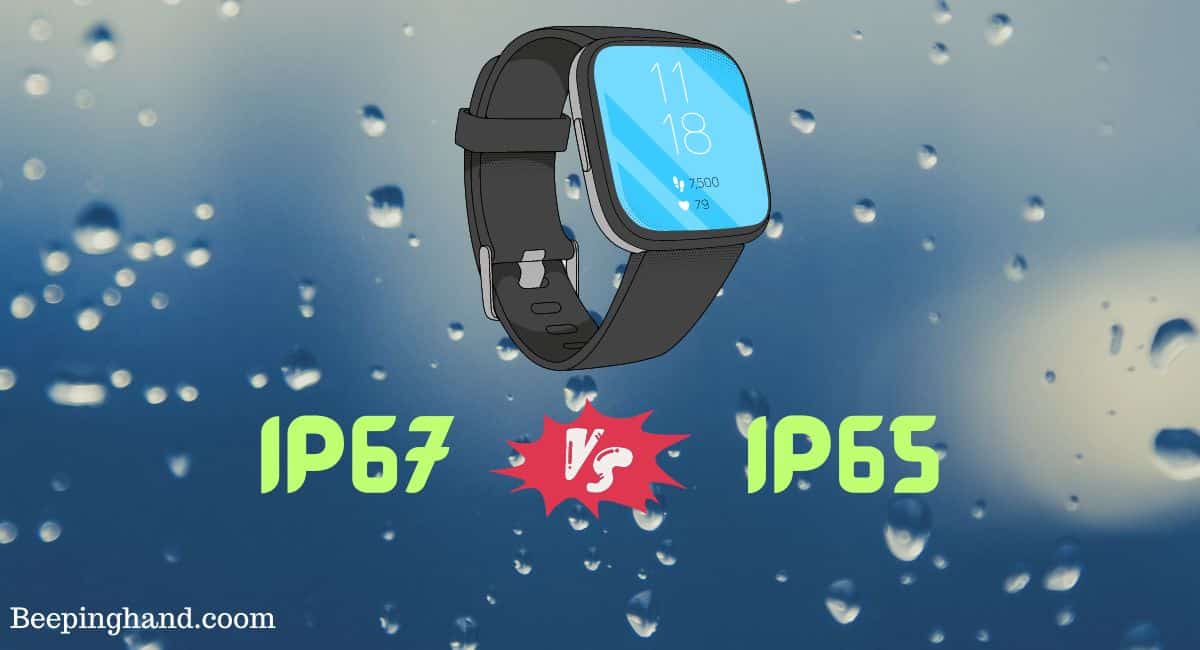When it comes to electronic devices and their resistance to water and dust, understanding the IP (Ingress Protection) ratings is crucial. Two common ratings you’ll often come across are IP67 and IP65. These ratings indicate the level of protection a device offers against water and solid particles.
Here, we’ll discuss the differences between IP67 vs IP65 and help you make an informed decision about which rating best suits your needs.
IP67 vs IP65: Which is Better?

When it comes to electronic devices and outdoor equipment, you may have come across terms like IP67 and IP65. These are Ingress Protection (IP) ratings that indicate the level of protection against dust and water that a device offers.
What is IP65?
IP65 is another common waterproof rating that offers a different level of protection compared to IP67. With an IP65 rating, the “IP” still represents Ingress Protection, but the “6” indicates the same level of protection against dust as IP67. The “5” in IP65, however, signifies protection against water projected from a nozzle. This means that an IP65-rated device is protected against water jets from any direction, but it is not designed to withstand full submersion.
Difference between IP67 and IP65
- Water Resistance – The primary distinction between IP67 and IP65 lies in their water resistance capabilities. IP67-rated devices can withstand temporary immersion in water, while IP65-rated devices are protected against water jets. Both ratings offer suitable protection in different scenarios, so consider your specific needs when choosing between them.
- Solid Particle Protection – Both IP67 and IP65 ratings ensure a high level of protection against dust and solid particles. Therefore, whether you opt for IP67 or IP65, your device will be safeguarded against harmful particles that could potentially affect its performance.
Also Read: Is Fitbit Watch Waterproof
Which Rating Should You Choose?
Choosing between IP67 and IP65 depends on your usage requirements. Here are some guidelines to help you decide –
- If you anticipate situations where your device may come into contact with water jets, such as using it in a rainy environment or cleaning it with a hose, an IP65-rated device would be suitable.
- On the other hand, if you need a device that can handle accidental submersion or brief underwater exposure, such as using it near a pool or in wet environments, an IP67-rated device is the better option.
Wrapping Up
This article is all about IP67 vs IP65. IP67 and IP65 are two common waterproof ratings that offer varying levels of protection against water and solid particles. IP67 provides temporary water immersion resistance, while IP65 protects against water jets. By understanding the differences between these ratings and considering your specific needs, you can confidently choose the right waterproof device for your requirements.
I hope this article was helpful to you. If you still have any questions then feel free to ask in the comment section. For more, Click Here to read.
FAQ’s IP67 vs IP65
What does IP67 mean?
IP67 is an Ingress Protection rating that indicates a high level of protection against dust and temporary immersion in water. The “IP” stands for Ingress Protection, while the “6” represents the device’s dust resistance. The “7” signifies that the device can withstand immersion in water up to a depth of 1 meter for 30 minutes without damage.
What does IP65 mean?
IP65 is also an Ingress Protection rating that guarantees protection against dust and water jets. The “IP” stands for Ingress Protection, while the “6” denotes the device’s dust resistance. The “5” indicates that the device is protected against water projected from a nozzle, making it suitable for use in environments with water jets.
Which rating should I choose for outdoor activities?
For outdoor activities where there is a possibility of exposure to water splashes or brief submersion, an IP67-rated device would be suitable. It provides protection against accidental water contact and is ideal for activities like hiking, camping, or jogging in the rain. However, if you anticipate water jets or pressurized water, an IP65-rated device would be a better choice.
Can an IP65-rated device be submerged in water?
No, an IP65-rated device is not designed for full submersion in water. While it offers protection against water projected from a nozzle, prolonged submersion or complete immersion can exceed its capabilities. If you need a device that can handle submersion, an IP67 or higher rating is recommended.
Can IP67 or IP65 ratings guarantee protection against other liquids like chemicals or oils?
No, IP67 and IP65 ratings are specifically related to protection against dust and water. They do not guarantee resistance to other liquids such as chemicals or oils. If you require protection against these substances, it’s important to check the device’s specifications or consult the manufacturer for additional information.
